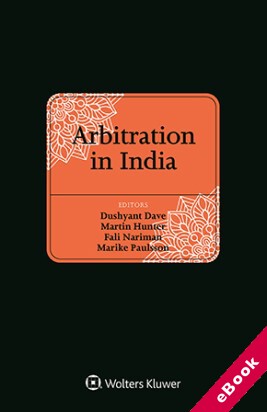
The device(s) you use to access the eBook content must be authorized with an Adobe ID before you download the product otherwise it will fail to register correctly.
For further information see https://www.wildy.com/ebook-formats
Once the order is confirmed an automated e-mail will be sent to you to allow you to download the eBook.
All eBooks are supplied firm sale and cannot be returned. If you believe there is a fault with your eBook then contact us on ebooks@wildy.com and we will help in resolving the issue. This does not affect your statutory rights.
Arbitration in India is a complete treatise – first of its kind, from the formation of the arbitration agreement in India to the enforcement of domestic and international awards – that aims to provide an up-to-date analysis of arbitration in India for those foreign counsels and arbitrators who have arbitrations in India and for Indian local counsel to understand the effects of international arbitration. India has a long-standing tradition of dispute resolution through arbitration, with arbitral-type regulations going back to the eighteenth century. Today, amendments to the 1996 Indian Arbitration Act, a steady evolution of case law and new arbitral institutions position India’s vibrant system once more at the forefront of international commercial dispute resolution. International arbitration practitioners, Indian practitioners, and scholars have combined efforts to produce a practical and informative guide on the subject.
What’s in this book:
Over forty members of the international arbitration community in India and beyond offer authoritative perspectives and insights into topics on arbitration in India. The contributors provide detailed analysis and description of the evolution and current position of the law and practices in India:
Practical features include checklists for drafting arbitration clauses and a comparative chart of major commercial arbitration rules applicable to India. Also included is a comparative analysis of arbitral regimes in India, Singapore and England; chapters on the India Model Bilateral Investment Treaty and ISDS reforms; a special section on the drafting of the award guided by leading arbitrators and stakeholders and a review of the new 2021 ICC Rules.
How this will help you:
The book aims to assist foreign lawyers, Indian lawyers, in-house counsel, arbitrators, judges and institutions in fostering their relationship with India and considerations with respect to arbitration that have an Indian nexus. It will prove to be an effective tool for students, practitioners, judges and others in understanding and navigating the particularities and peculiarities of India’s system of domestic and international commercial arbitration.